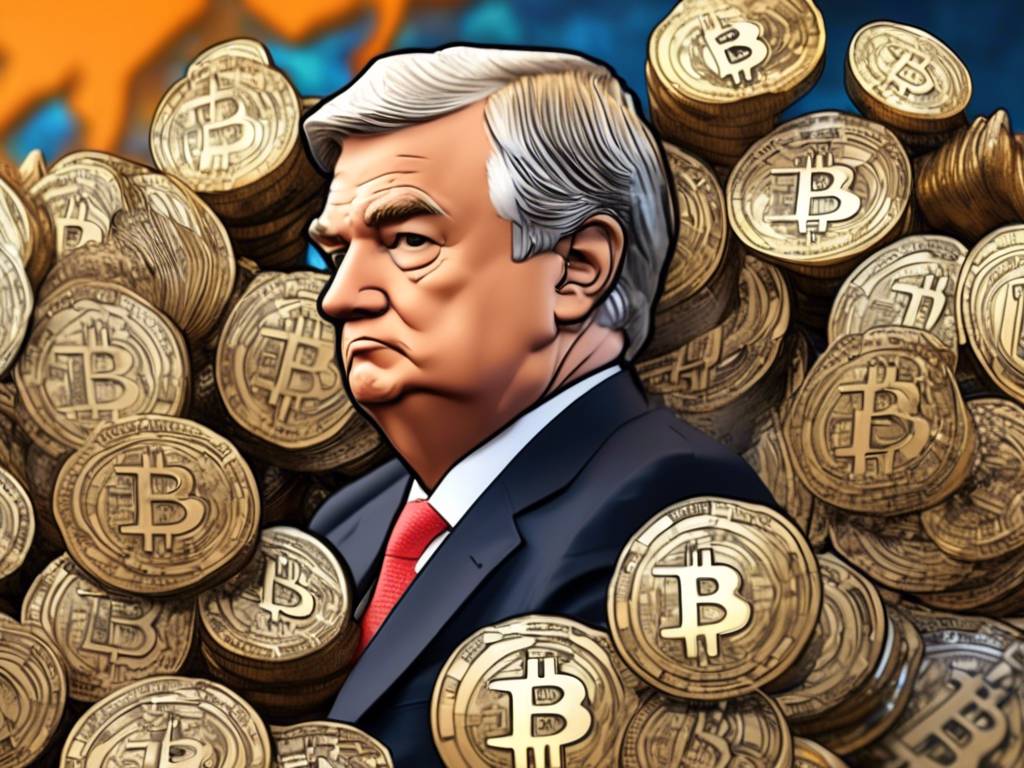The President of the Federal Reserve Bank of Minneapolis Criticizes Bitcoin
The President of the Federal Reserve Bank of Minneapolis, Neel Kashkari, recently made comments criticizing Bitcoin (BTC) by stating that it lacks a legitimate use case and may be endangering investors. Kashkari argues that Bitcoin poses more of a risk to consumer safety than to financial stability.
Concerns About Bitcoin
- Neel Kashkari believes that Bitcoin has no real utility in the economy besides being a trendy toy for some people to own and trade.
- He compares Bitcoin to Beanie Babies, suggesting that its market cap could plummet to zero.
Risks Associated with Bitcoin
- Kashkari expressed concerns about people using Bitcoin to bypass banking regulations or engage in illicit activities.
- He cautioned against drawing parallels between Bitcoin’s success and that of retail giant Amazon, highlighting the lack of a legitimate use case for Bitcoin.
Bitcoin as Digital Gold
- Bitcoin proponents view BTC as a digital counterpart to gold – a secure, scarce, and global asset with minimal transfer fees.
- This perception has fueled increased adoption of Bitcoin in countries like Argentina, where it serves as a hedge against inflation.
The President of the Federal Reserve Bank of Minneapolis, Neel Kashkari, raised concerns about the lack of a legitimate use case for Bitcoin and its potential risks to investors.
Fed Chief Criticizes Bitcoin
Neel Kashkari, the President of the Federal Reserve Bank of Minneapolis, recently voiced his skepticism about Bitcoin’s value and utility, suggesting that the cryptocurrency may be leading investors astray.
Bitcoin’s Lack of Utility
- Kashkari contends that Bitcoin has no practical applications in the economy beyond being a speculative asset.
- He compared Bitcoin to Beanie Babies, implying that its market value could eventually collapse.
Concerns About Bitcoin’s Impact
- Neel Kashkari warned that people might be using Bitcoin to circumvent financial regulations or engage in illicit activities.
- He advised against equating Bitcoin’s success with that of established companies like Amazon, noting the absence of a genuine use case for Bitcoin.
Bitcoin’s Role as a Digital Asset
- Supporters of Bitcoin see it as a digital equivalent to gold – a secure, scarce, and globally accepted asset with low transaction fees.
- This narrative has fueled the adoption of Bitcoin in countries like Argentina, where it offers a safe haven against inflation.
Neel Kashkari, the President of the Federal Reserve Bank of Minneapolis, expressed doubts about Bitcoin’s utility and raised concerns about its impact on investors.
Questioning the Value of Bitcoin
The President of the Federal Reserve Bank of Minneapolis, Neel Kashkari, recently remarked on the speculative nature of Bitcoin and its potential dangers for investors.
Bitcoin’s Utility Challenge
- Kashkari argued that Bitcoin lacks practical applications in the economy, functioning primarily as a speculative tool.
- He drew a comparison between Bitcoin and Beanie Babies, hinting that the cryptocurrency’s market value could plummet in the future.
Concerns Over Bitcoin’s Usage
- Neel Kashkari highlighted the possibility of Bitcoin being used to evade financial regulations or facilitate illicit activities.
- He cautioned against equating Bitcoin’s trajectory with that of industry giants like Amazon, citing the absence of a legitimate use case for the cryptocurrency.
Bitcoin’s Digital Gold Narrative
- Advocates of Bitcoin view it as a digital alternative to gold – a secure, scarce, and globally recognized asset with minimal transfer costs.
- This perspective has driven the adoption of Bitcoin in countries such as Argentina, where it provides protection against inflationary pressures.
Hot Take: Reflecting on Kashkari’s Bitcoin Critique
Neel Kashkari’s comments on Bitcoin’s lack of utility and potential risks shed light on ongoing debates about the cryptocurrency’s value and purpose. Investors should consider the concerns raised by industry experts while evaluating their involvement in the digital asset space.





 By
By
 By
By
 By
By

 By
By